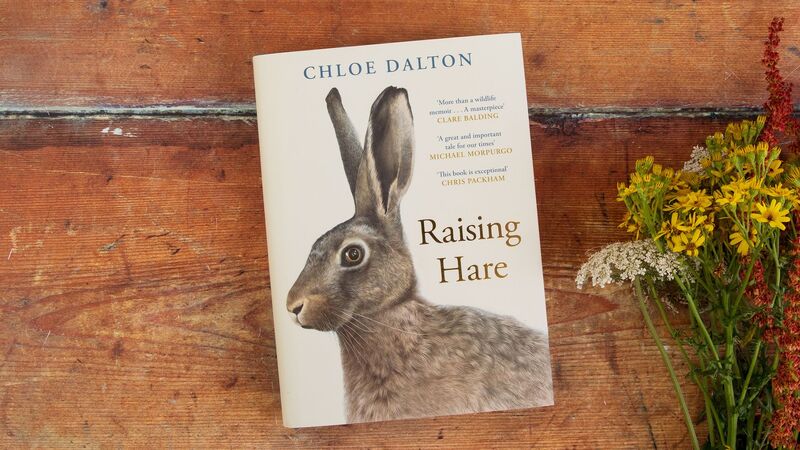You are viewing your 1 free article this month. Login to read more articles.
Crime queen: Elizabeth George
Elizabeth George, whose new book is Just One Evil Act, is one of those American writers who gets Britain.
In her 30-year, 23-book writing career, George has set most of her work on this scepter’d isle—including the 18 titles in her Inspector Lynley/DS Barbara Havers series—and her depiction of British life (not to mention her intricately plotted police procedurals) is note perfect.
Yet, however attuned she is, George confesses to some mystification over one aspect of life in the UK: the power of the tabloids. “Whenever I write about the British tabloids in my books I think: ‘Am I making this too broadly drawn, too over the top?’ Then I think: ‘That’s probably not possible.’
“The tabloid culture here is remarkable, we have nothing that compares in the US, except maybe the [Rupert Murdoch-owned] New York Post,” she says. “So much credence is given to tabloids and they have a remarkable power. And they have a snarky way of writing; I’ll often read them and think: ‘Oh my god, this is horrible.’”
Just One Evil Act
We are talking tabloids on a rainy, grey London day because the red tops figure prominently in the newest Lynley/Havers, Just One Evil Act. The story centres around Hadiyyah Upman, a British girl who is kidnapped in an open-air market in Lucca, Italy.
Havers is a neighbour and friend of the girl’s father, and she expertly whips the tabloids into a feeding frenzy to get British police involved in the case. Havers’ boss Lynley is then sent to Lucca to battle against the criminals who snatched the girl, and an Italian magistrate who wants to arrest and convict anyone, no matter what the evidence.
The harsh glare of the media spotlight, a crime in Italy with a British victim, and a decidedly dodgy Italian justice system. If the elements seem familiar they should; the broad inspiration for the book was the Amanda Knox case. “I was in England when Meredith [Kercher] was murdered and I live near Seattle where Amanda Knox is from. So I saw the ferocity of how the British tabloids really went after Knox as the likely suspect—the Foxy Knoxy stuff and the Facebook pictures—and I followed the whole trial closely.”
What really gobsmacked George was how Italian policing works. Prosecutors are appointed for life, they direct the police inquiries and have wide, sweeping powers to investigate anyone they think is guilty, even without probable cause. “It is just jaw-dropping, particularly when you compare the policing in Italy to the British or US systems. I thought dropping Lynley into that would be really fun.”
Becoming a writer
George was born in Ohio but grew up in Mountain View, California, now known worldwide as the home of Google, and in a way, Silicon Valley has had a profound impact on her life. The city certainly was not full of dotcom billionaires then: “The biggest business in town was the plum orchards. As kids we knew we had to come home by the time the prune processing factory’s five o’clock whistle blew.”
The second big Silicon Valley influence happened in 1983. George had been working as a teacher, trying to become a writer in her spare time, but she finally sat down and made a concerted effort when the at-home PC became widely available. “The computer made writing much easier than it had been before,” she says. “But, of course, it was more than that. I had always written and I had one of these revelations that it was put up or shut up time. What do I want to say on my deathbed: ‘I could have written a novel or I have written a novel’?”
The Inspector Lynley Mysteries
George wrote three novels in three years before she had one accepted by a publisher in 1985. She chose to set her books in England simply because she was (and is) an Anglophile—she was obsessed by The Beatles when she was in school, and fell in love with London on a trip during her time at university. The Lynley/Havers series is British enough for the BBC to have commissioned six seasons of “The Inspector Lynley Mysteries”, running from 2001–07.
However, George has moved closer to home with her Saratoga Woods Young Adult series, set in Whidbey Island off the coast of Seattle, where George now lives. The first in the series—2012’s The Edge of Nowhere—features teenager Becca King, who realises she can “hear” people’s thoughts and thus discovers her stepfather’s criminal activities, forcing her to flee to the island from the mainland.
It took a while to get the tone right. “In YA, everything has to be filtered through eyes and experience of the young adult, there can’t be an intervening adult that comes down like a deus ex machina providing useful information or a weapon . . . adults can’t do anything to resolve the critical issues in the plot. I didn’t know that getting into it; it took me five drafts to figure that out.”
With No One as Witness
George has shaken up her adult series in the last few books as Lynley was starting to suffer from a terminal disease for the fictional copper: happiness. She says: “I wanted to open Lynley’s story up as I felt it was starting to close down. He was married, his wife Helen was pregnant, and they had resolved all sorts of personal problems.”
This was bad news for Helen, who got gunned down at the end of With No One as Witness, much to the chagrin, and outright anger, of many fans. That reaction pleased George. “When Helen died I asked the readers to feel something. I needed them to experience, at least in some respects, a margin of devastation. I’ve been asking readers to come and share in Lynley’s life and I hoped they would feel something of what he would feel. I knew I had been successful when people were outraged.
"If you had finished that book, shrugged, threw it over your shoulder and then went in the kitchen and made yourself a sandwich, it hadn’t worked.”
Just One Evil Act by Elizabeth George is published by Hodder.














